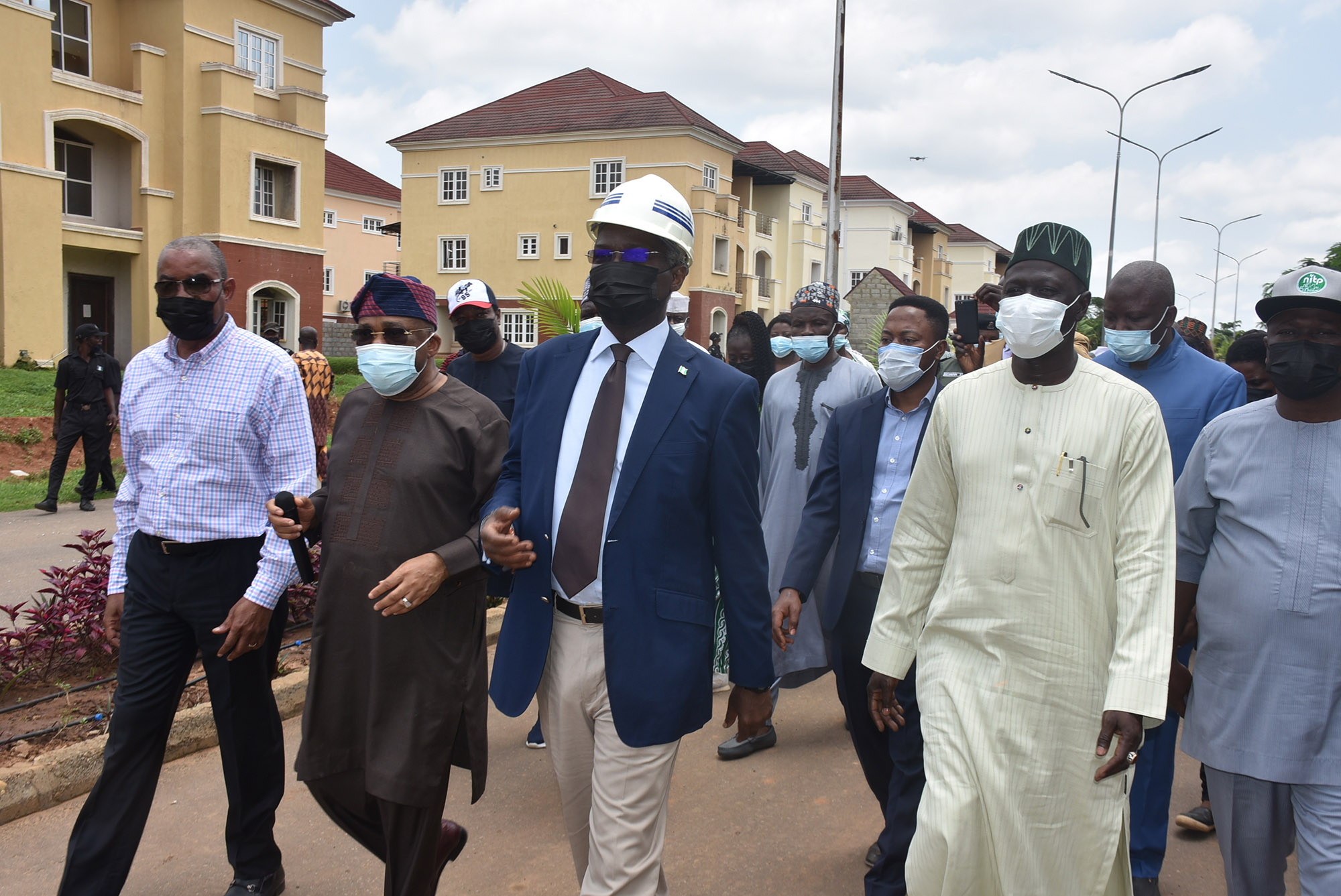Business
Construction, Real Estate Sectors Contribute N20trn To GDP – NBS

The National Bureau of Statistics (NBS) has said economic activities in the construction and real estate sectors contributed N20trllion to the nation’s Gross Domestic Product (GDP) in the first three quarters of 2022.
The NBS report also showed that construction services earned N12.9trllion, while real estate contributed N7trllion to the GDP.
It further revealed that the construction sub sector contributed 9.5 per cent to nominal GDP in the third quarter of 2022, which is higher than the 9.26 per cent it contributed a year earlier and higher than the 7.95 per cent contributed in the second quarter of 2022, and also grew by 18.92 per cent in nominal terms (year-on-year) in the 2022 third quarter.
However, the sector dropped 28.75 per cent points, as compared to the rate of 47.67 per cent it recorded in the same quarter of 2021.
According to the national statistics body, real estate services in nominal terms grew by 9.13 per cent, higher by 0.50 per cent points than the growth rate reported for the same period in 2021, and lower by 3.68 per cent points compared to the preceding Quarter.
On a Quarter-on-Quarter, the sector growth rate was 16.38 per cent. The contribution to nominal GDP in Q3, 2022 stood at 4.96 per cent, relative to 5.27 per cent recorded in the third quarter of 2021 and higher than the 4.95 per cent accounted for in the second quarter of 2022.
The NBS calculates the sector’s contribution by adding up gross outputs such as a sum of fees, the value of work done, commissions receivable for the services rendered and other incomes.
It also considers intermediate consumptions such as details of the cost structure, including transportation fees, operational expenditure, minor repairs and maintenance etc.
“From the foregoing, it is clear that the contributed amount had revealed what the private sector could achieve in the nation’s GDP.
“When we talk about real estate, it is driven by private investors. This implies that for any economy to thrive, the private sector must be given a platform and a level playing ground for them to perform.
“It will be of note also that the real estate industry does not require an incubation period. Anytime you start building a house, at least 25 persons will get a job. So, if the government wants to support the economy of the country, more opportunities should be given to the private sector to thrive”, the report stated.
By: Corlins Walter
Transport
Automated Points Concession : FAAN Workers Gave 72hrs To Revise Decisions In PH

Transport
FAAN Announces Pick-Up Points for Go-Cashless Cards

Business
Fidelity Bank To Empower Women With Sustainable Entrepreneurship Skills, HAP2.0
-
Politics3 days ago
2027: NIGERIANS FAULT INEC ON DIGITAL MEMBERSHIP REGISTER DIRECTIVE
-

 Environment3 days ago
Environment3 days agoLAWMA Director Says Sweeping Reforms Have Improved Waste Collection
-
Politics3 days ago
LP Crisis: Ex-NWC Member Dumps Dumps Abure Faction
-

 Politics3 days ago
Politics3 days agoUmahi Dismisses Allegations On Social Media, Insists On Projects Delivery
-

 Sports3 days ago
Sports3 days agoAbia Not Sure To Secure continental Ticket
-
Sports3 days ago
La Liga: Yamal Records First Career Hat-trick
-
Politics3 days ago
NATASHA ELECTRIC VEHICLES INITIATIVE IN KOGI CENTRAL
-

 Sports3 days ago
Sports3 days agoPSG Extend Lead In Ligue 1

